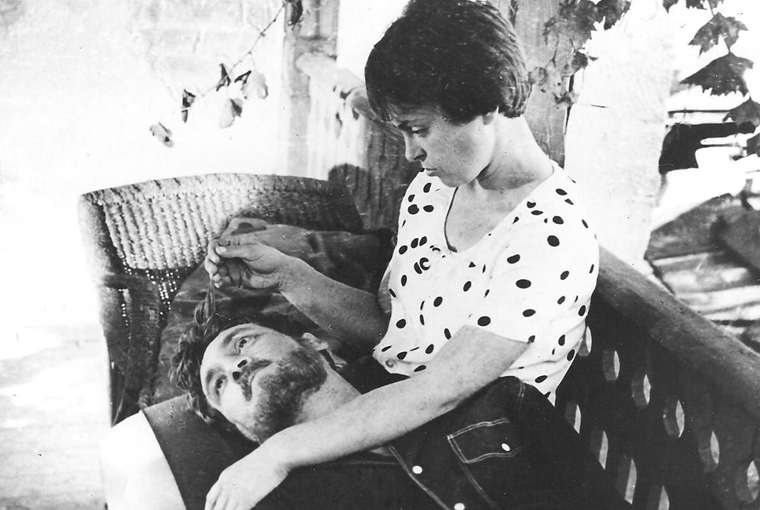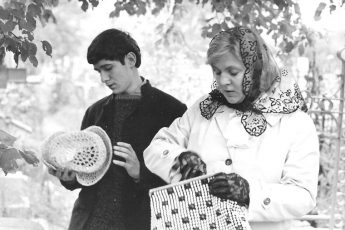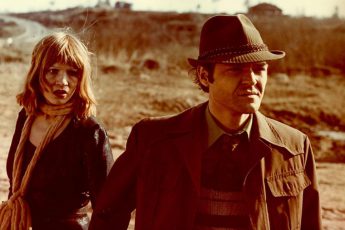
Film critics have often waxed eloquent concerning Kira Muratova’s cardinal device, the love of the double, represented through the mirror, the twin, and the double shot; through tautologies and reduplicated lines of dialogue. They’ve also talked about the non-linearity of her work, the seemingly unthinking drift of the camera; the way it’s distracted by a stranger walking off into a crowd.
But ultimately, as Eugénie Zvonkine recently pointed out at a conference at the Cinematheque in Paris that attended an extensive retrospective of Muratova’s work, hers is a cinema of self-indulgence. Muratova, who passed away last year, was fostering her own taste. Was she trying to cater to an audience of censors? No, she was trying to get the work done. “What matters is that we’ve made it, something’s been finished,” she says in a 2016 interview with Alexey Artamonov that we’re republishing in English as part of this month’s issue on Muratova’s work. Though Muratova’s films were heavily censored for many years, she never resorted to crowd-pleasing or to nationalistic pandering to the government. If anything, repression only made her more determined to continue making films that she liked, that were made for her and for her alone. If the public was pleased, good for them, if not, never mind! Isn’t this kind of self-indulgence the ultimate form of rebellion?
***
This month’s issue on the work of Kira Muratova features an exciting array of contributions, starting with the wonderful Eugénie Zvonkine, who reflects on the cinematic device of the ‘unfinished’ in Long Farewells. Giuliano Vivaldi considers Getting to Know the Big Wide World as Muratova’s transitional film between her provincial melodramas and her later work. Isabel Jacobs, inspired by the work of Croatian philosopher Srećko Horvat, reconsiders Soviet ideals of love under the gaze of the director in her 1967 film Brief Encounters. Masha Shpolberg’s article reviews socialism in the work of Muratova through the philosophical concepts of ‘the fragment’ and ‘the ruin’. Finally, we are republishing Alexey Artamonov’s 2016 interview with Kira Muratova, translated into English for the first time by Daniil Lebedev.
Colette de Castro
Guest Editor & Contributor




Leave a Comment